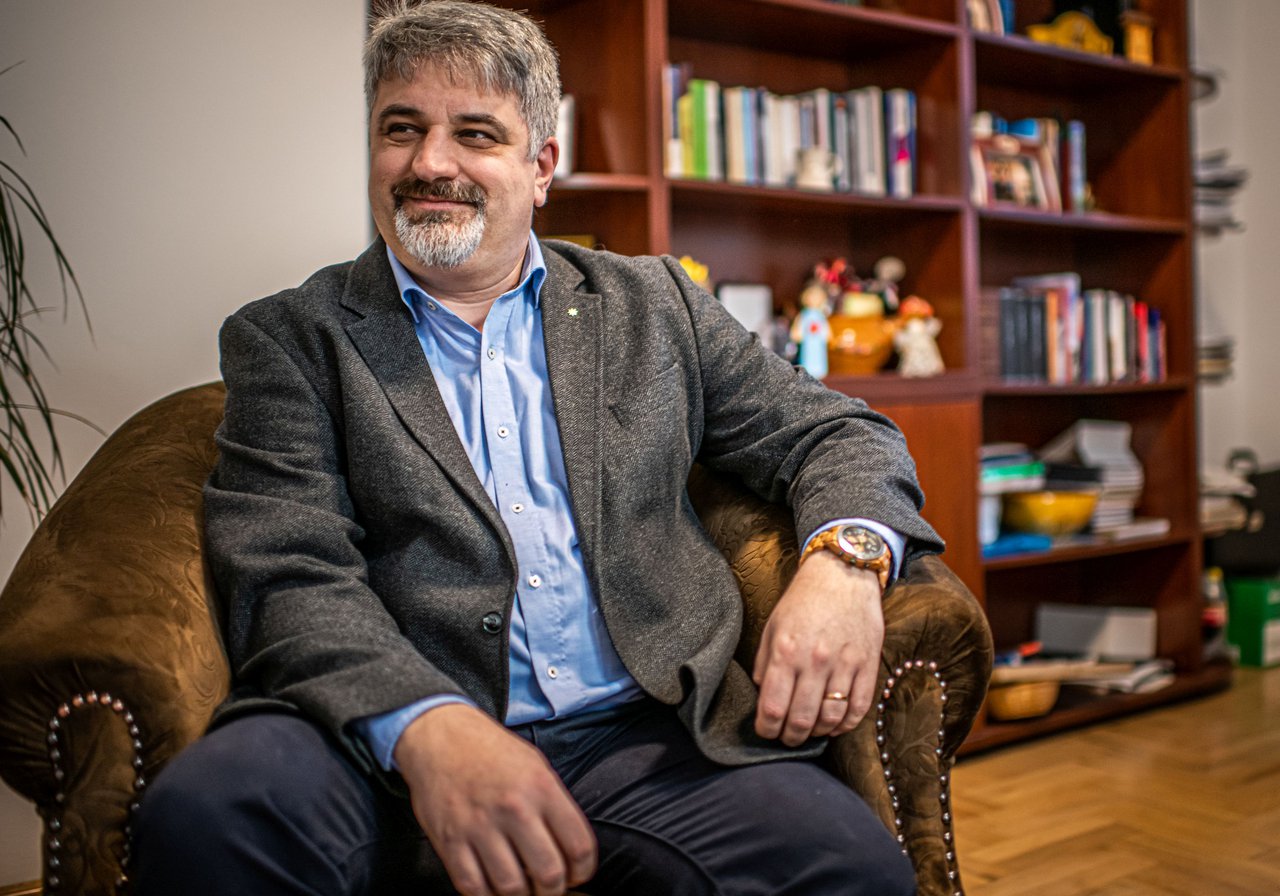It is not possible to reduce the chance of the coronavirus penetrate into social institutions to zero, says András Beszterczey, reformed minister and head of the Diaconal Office of RCH. However, he is sure that nurses in Reformed social institutions would never leave their patients alone.

Do you have residents, nurses or colleagues infected with coronavirus in any of your elderly homes as of today (24 April)?
No. There has been two suspect cases, a client and a co-worker. But have tested them, as well as additional staff and residents. The problem is that we only have a limited number of tests. We are consulting with doctors and infectologists. We run the test, if our employees feel the need. This is important, for example, for those who use public transport for getting to work. We have decided that although it is not mandatory, we will also test our residents who return after hospitalization. According to the ministerial decree, only those have to be tested, who enter as new residents after a stay in a medical institution: hospitals release the patients only after they were tested twice negatively in a period of 48 hours.
Can new applicants be admitted despite the moratorium? Is this necessary so that hospital beds can be emptied?
The provision says that if there is free place in a social institution, we are obliged to take over patients from a hospital, but we can only admit applicants from outside, living at home, in exceptional cases. We have decided not to accept new residents from outside for the sake of the safety of those who are already living inside.
Diaconal Institutions maintained by congregations, presbyteries, districts and the Diaconal Office of RCH provide care for 40,000 people in the country, with almost 6,000 employees. There are a total of 176 institutions – including, beside elderly homes, homes for people with disabilities, homeless and home care networks. In the 59 institutions maintained by the Diaconal Office of RCH, nearly 7,000 patients are taken care of.
Do you have enough protective gears?
There is supply of equipment provided by the state, but we have to order gears from other resources as well. However, this is a difficult situation, as the price of protective equipment – rubber gloves, masks, protective overalls – has increased by ten to fifteen times in a few weeks. This year we have invested 140 million forints in protective gear, and we can’t see the end of the epidemic. In order to be able to finance these measures, we had to suspend our developments planned for this year.
Can an elderly home be fully protected from infection?
The risk cannot be reduced to zero, it can inevitably occur, despite strict compliance with ministerial instructions, that the virus somehow penetrates institutions. The most important thing is that our employees do their job responsibly, no matter what. In a reformed elderly home it is certainly impossible that patients are abandoned, like in a Spanish home where nurses have escaped the infection, leaving many helpless elderly people dead. Moreover, the Diaconal Office introduced strict rules, such as a ban on visits and admissions, a week and a half ahead of state measures.
Does the Hungarian Army help disinfect all of the nursing homes of RCH?
The residential homes of the elderly are being disinfected throughout the country. All our institutions made arrangements, soldiers are open and humane, and they honour the requests of our institutions.
Despite the lockdown, is there an opportunity for a spiritual life?
Pastors from outside are not allowed to enter the homes. But most of our institutions have their own pastors. They come regularly to hold worship in small circles, and pray with our residents. Fear and sense of isolation are growing, therefore we need hope and faith and to raise our eyes to God.
You Are Not Alone!
The Presidency of the Synod addressed an open letter to the staff of the diaconal institutions and healtcare workers of RCH expressing gratitude and appreciation for their restless work in times of the pandemic.
Translated by Bálint Farkas